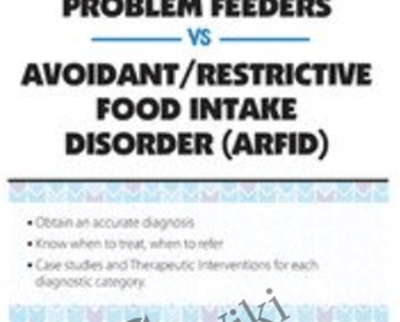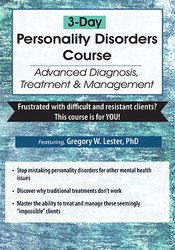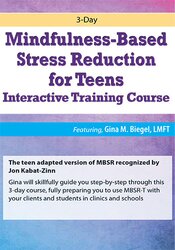Buy Picky Eaters vs Problem Feeders vs Avoidant/Restrictive Food Intake Disorder (ARFID) – Dr. Kay Toomey Course at GBesy. We actively participate in Groupbuys and are committed to sharing knowledge with a wider audience. Rest assured, the quality of our courses matches that of the original sale page. If you prefer, you can also buy directly from the sale page at the full price (the SALEPAGE link is directly provided in the post).
Salepage link: At HERE. Archive:
$99.99 $32 – Picky Eaters vs Problem Feeders vs Avoidant/Restrictive Food Intake Disorder (ARFID) – Dr. Kay Toomey
Pediatric feeding disorders make it difficult or impossible for a child to eat, drink, or digest food normally, often compromising their health and development.
The limited intake seen in these children reflects concerns such as:
- Food aversions
- Lack of interest in eating or food
- Avoidance based on sensory characteristics of food
- Fear of choking or other adverse consequences
- Serious medical and psychological complications consist of:
- Severe malnutrition
- Growth failure
- Marked interference with psychosocial functioning
Feeding expert, Dr. Kay Toomey, who has over 30 years of clinical experience assessing and treating children with a wide range of feeding challenges, will show you clear guidelines to utilize the appropriate therapy approach.
Learn practical therapeutic interventions to use with children from each diagnostic group and ways to improve family meal routines and increase children’s intake of more nutritious foods.
- Identify physical, motor, sensory, oral-motor, environmental, nutritional and behavior factors necessary to consider, to properly assess feeding problems.
- Delineate differential criteria for determining a child’s diagnosis as a typical eater, picky eater, problem feeder or a child with ARFID.
- Learn when to refer to a specialist for additional treatment
. Identify physical, motor, sensory, oral-motor, environmental, nutritional and behavior factors necessary to consider, to properly assess feeding problems.
2. Delineate differential criteria for determining a child’s diagnosis as a typical eater, picky eater, problem feeder or a child with ARFID.
3. Evaluate the diagnosis of ARFID to discover sensory sensitivity, fear of aversive consequences and/or apparent lack of interest in eating or food.
4. Utilize practical treatment strategies to advance children’s feeding skills, improve family meal routines and increase children’s intake of more nutritious foods.
5. Conduct more thorough and accurate diagnoses, to implement the right treatment approaches for the distinct types of feeding/eating problems.
6. Discriminate when a child needs additional evaluation and intervention by specialists for more intense treatment.
Prevalence of the Problem
- Picky eating
- Problem feeding
- ARFID
The Complexity of Feeding/Eating
- 7 areas of human function
- How children learn to eat (or not)
How to Complete a Comprehensive Feeding Assessment
- Medical/organs
- Oral-motor skills
- Sensory-motor skills
- Postural and motor skills
- Nutrition
- Learning/cognition
- Environment
Differential Diagnoses Criteria, Research and Limitations
Picky eating
- Able to tolerate new foods on plate
- Decreased range or variety of foods that will eat
- Frequently eats a different set of foods than the rest of the family
Problem feeding
- Restricted range or variety of foods
- Refuses entire categories of food textures
- Cries and “falls apart” when presented with new foods
ARFID
- Accept a limited diet in relation to sensory features
- Food refusal is related to aversive or fear-based experiences
- Extreme pickiness; distractible and forgetful
Treatment Approaches – Align Treatment w/ Diagnosis
- Systematic desensitization
- Flooding/escape extinction
- Eating disorders
Case Studies: When Assessments Go Well, and When They Don’t
Picky eating –
- Case 1 = 2 ½ year old male with limited number of accepted foods he will eat, variable eating from one day to next, issues staying at the table
- Case 2 = 2 ½ year old female with restricted food range, over reliance on liquids for calories and swallowing assistance
- Case 3 = 9 year, 8-month-old male with lack of healthly proteins per parents, and no vegetables in his food range
Problem feeding –
- Case 1 = 3 year, 10-month-old female with a G-tube, born at 26 weeks gestation, complicated medical history
- Case 2 = 4.25-year-old female born with congenital Rubella, poor weight gain, restricted food range, episodes of gagging and coughing, episodes of refusing to eat
ARFID –
- Case 1 = 15-year-old male with chronic “chok-y” sensation, significant weight loss, hospitalized in an Eating Disorders program
- Case 2 = 13-year-old male with difficulties eating food at school, restricted food range per parental report, refusal to eat vegetables
Practical Feeding Strategies for Pediatric Feeding Disorder
Routines and environmental supports
Matching foods to a child’s skillset
Reinforcement
Management of maladaptive behaviors
When to Refer
Red Flags
Picky Eater vs Problem Feeder criteria
$99.99 $32 – Picky Eaters vs Problem Feeders vs Avoidant/Restrictive Food Intake Disorder (ARFID) – Dr. Kay Toomey
Buy the Picky Eaters vs Problem Feeders vs Avoidant/Restrictive Food Intake Disorder (ARFID) – Dr. Kay Toomey course at the best price at GBesy.. After your purchase, you will get access to the downloads page. You can download all the files associated in your order at here and we will also send a download notification email via your mail.
Unlock your full potential with Picky Eaters vs Problem Feeders vs Avoidant/Restrictive Food Intake Disorder (ARFID) – Dr. Kay Toomey courses. our courses are designed to help you excel.
Why wait? Take the first step towards greatness by purchasing Picky Eaters vs Problem Feeders vs Avoidant/Restrictive Food Intake Disorder (ARFID) – Dr. Kay Toomey courses today. We offer a seamless and secure purchasing experience, ensuring your peace of mind. With our trusted payment gateways, Stripe and PayPal, you can confidently complete your transaction knowing that your financial information is protected.
Stripe, known for its robust security measures, provides a safe and reliable payment process. With its encrypted technology, your sensitive data remains confidential throughout the transaction. Rest assured that your purchase is protected.
PayPal, a globally recognized payment platform, offers an additional layer of security. With its buyer protection program, you can feel confident in your purchase. PayPal ensures that your financial details are safeguarded, allowing you to focus on your learning journey.
Is it secure? to Use of?
- Your identity is completely confidential. We do not share your information with anyone. So it is absolutely safe to buy the Picky Eaters vs Problem Feeders vs Avoidant/Restrictive Food Intake Disorder (ARFID) – Dr. Kay Toomey course.
- 100% Safe Checkout Privateness coverage
- Communication and encryption of sensitive knowledge
- All card numbers are encrypted using AES at relaxation-256 and transmitting card numbers runs in a separate internet hosting atmosphere, and doesn’t share or save any data.
How can this course be delivered?
- After your successful payment this “Picky Eaters vs Problem Feeders vs Avoidant/Restrictive Food Intake Disorder (ARFID) – Dr. Kay Toomey course”, Most of the products will come to you immediately. But for some products were posted for offer. Please wait for our response, it might take a few hours due to the time zone difference.
- If this happens, please wait. The technical department will process the link shortly after. You will receive notifications directly by e-mail. We appreciate your wait.
What Shipping Methods Are Available?
- You will receive a download link in the invoice or YOUR ACCOUNT.
- The course link always exists. use your account to login and download the Picky Eaters vs Problem Feeders vs Avoidant/Restrictive Food Intake Disorder (ARFID) – Dr. Kay Toomey course whenever you need.
- You only need to visit a single link, and you can get all the Picky Eaters vs Problem Feeders vs Avoidant/Restrictive Food Intake Disorder (ARFID) – Dr. Kay Toomey course content at once.
- You can do your learning online. You can be downloaded for better results and can study anywhere on any device. Make sure your system does not sleep during the download.
How Do I Track Order?
- We always notice the status of your order immediately after your payment. After 7 days if there is no download link, the system will automatically complete your money.
- We love to hear from you. Please don’t hesitate to email us with any comments, questions and suggestions.
![GBesy [GB] GBesy [GB]](https://www.gbesy.com/wp-content/uploads/2023/05/gbesy-Logo-full-100.png)



 Purchase this course you will earn
Purchase this course you will earn 





Reviews
There are no reviews yet.